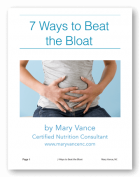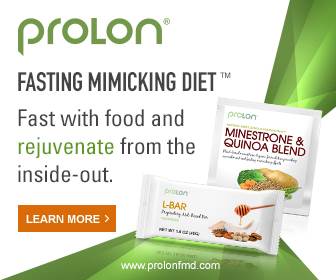All disease begins in the gut. This statement has become the mantra for most holistic practitioners. We know that the gut is the site where inflammation typically takes root, due to bad bacteria overgrowth and inflammatory foods, and inflammatory cytokines travel throughout the body causing oxidative stress, setting the stage for inflammatory diseases such as IBS, cardiovascular disease, arthritis, autoimmune disease, and even dementia, depression, and Alzheimer’s. That’s right– the health of your gut directly impacts the health of your brain. The gut brain connection is key to healthy moods.
Why a Healthy Gut is the Key to a Happy & Healthy Brain
The gut has long been called “the second brain,” technically known as the enteric nervous system. Ever notice how feeling nervous or anticipating a stressful event gives you that fluttery feeling of butterflies in your stomach? There’s a reason for that “gut feeling.” The gut and brain and connected by a long neural tube called the Vagus nerve.
There are neurons embedded in the intestinal walls, and 95 percent of serotonin, our feel-good neurotransmitter, is produced in the gut. (source) This is one reason inflammatory intestinal conditions are also linked to depression and anxiety. If your gut is inflamed, your serotonin production is compromised, contributing to constipation and mood imbalance. Additionally, gut inflammation results in brain inflammation thanks to the Vagal nerve connection. This is hugely significant because it means that neurological diseases such as Alzheimer’s, dementia, mood disorders, Parkinson’s, ADD/ADHD, and even autism may originate in the gut. There’s a new field emerging called neurogastroenterology focusing on the gut brain connection and the enteric portion of the digestive tract. The GAPS diet (Gut and Psychology Syndrome) is one example of a holistic plan focusing on healing mood imbalance by healing the gut.
Our gut microbiome, the ecological community of commensal, symbiotic, and pathogenic microorganisms in our intestinal tract, is made up of 1-2 times more cells than the rest of our body, and weighs in at over 3 pounds. There are trillions of bacteria living in your gut. Researchers have learned that much of the population of microbes found in the human body belong to a very old biological domain of single-celled organisms called archaea. Many practitioners consider the microbiome an organ, just like your heart or liver, one that needs to be nourished and treated as such. We focus on foods and lifestyle practices to nourish our other organs. The gut deserves the same treatment! After all, the majority of your immune system lives in your gut, so a healthy gut not only means a healthy brain, it also means resilient immunity.
For robust health, you need a diverse array of bacteria in your large intestine. There are both good and bad guys living in your gut, and they should ideally exist symbiotically, both benefitting one another and in turn helping you digest your food and produce certain vitamins. But overuse of antibiotics that destroy our gut flora, along with antibiotics used in 70 – 80 percent of the animals we eat, wipe out our good bacteria and set the stage for inflammation to take hold in our digestive tracts. The bad guys start to crowd out the good guys, and you may notice an increase in unpleasant digestive symptoms such as gas, bloating, indigestion, constipation, candida overgrowth, skin rashes, acne, or eczema.
Many of us get our start in this world with compromised gut ecology, especially if we’re born via C-section. Studies show that babies delivered by C-section are missing at least one of the major groups of gut bacteria, resulting in immune system imbalances and a higher risk for developing inflammatory GI conditions, allergies, and autoimmune disease. (source) Babies born vaginally get a coating of the mother’s gut bacteria as they pass through the birth canal. This first dose of bacteria functions as the building block for baby’s immune system and gut microbiome. That’s why it’s so important for mom to have healthy gut flora too!
Changes in the gut ecology from antibiotics, diet, OTC or street drugs, and chemicals can triggerleaky gut, an increase in food allergies, and even trigger autoimmune disease. And of course, chronic inflammation in the gut results in brain inflammation, which affects your brain’s ability to produce the necessary neurotransmitters used for proper signaling. This can cause depression, anxiety, brain fog, movement and speech disturbances, and longterm, we now it’s a contributing factor in Parkinson’s and Alzheimer’s. (source: Grain Brain, by Dr David Perlmutter).
Too much bad gut bacteria can also affect your body’s ability to burn fat! The bad guys can actually extract more calories from your food, contributing to weight gain and obesity. (source)
How to nourish your brain and keep all your marbles
Start with your gut health. Remove inflammatory foods from your diet: gluten, dairy, white sugar, processed foods, and chemicals like pesticides and BPA. If you’re skeptical about the gluten hype, know that today’s wheat is aggressively hybridized, resulting in a product that our bodies aren’t equipped to process. That sets the perfect storm to increase inflammation. Try a gut reset.
Nourish your microbiome! Avoid antibiotics if at all possible. Learn to boost your immune system naturally, and understand that a healthy gut means a healthy immune system, too. Get plenty of fiber-rich foods to nourish your prebiotic bacteria that feed your probiotic bacteria. Inulin is a wonderful food source for your gut bacteria. It’s rich in foods like artichoke, dandelion greens, and okra. Get the resistant starch like green-tipped bananas, potatoes, and banana flour (or potato flour); it feeds your prebiotics too. Include fermented foods daily. I recommend raw kraut and coconut water kefir for the highest sources. Take a probiotic, and rotate between different brands so you get a variety of strains. I like Renew Life and and TerraFlora, high in soil based organisms. Read how to boost your beneficial gut microbes here.
Stress gets a special shout-out because high cortisol increase inflammation in the body. Stress can alter your gut function over time. Address your stress and learn to support yourself during periods of stress. Consider meditation, which is shown to have far reaching effects against stress. If you have nagging digestive issues, try stool testing to check for parasites, dysbiosis, SIBO, and pathogenic bacterial overgrowth (get the GI MAP here, 7th down on the menu). These infections can be eradicated with certain herbs.
Resources
Click here for the microbiome diet.
Click here for gut superfoods.
Click here to join the 21 day gut reset.

Mary Vance is a Certified Nutrition Consultant and author specializing in digestive health. She combines a science-based approach with natural therapies to rebalance the body. In addition to her 1:1 coaching, she offers courses to help you heal your gut and improve your health. Mary lives in San Francisco and Lake Tahoe in Northern California. Read more about her coaching practice here and her background here.










we are a 70 year male diagnosed parkinson due to tremor in right hand once a day for 20 seconds. Took medication.